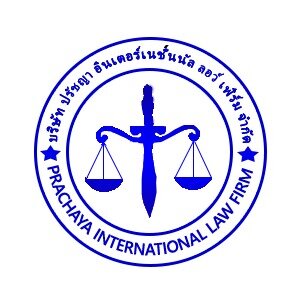Best Employment & Labor Lawyers in Huai Khwang
Share your needs with us, get contacted by law firms.
Free. Takes 2 min.
List of the best lawyers in Huai Khwang, Thailand
Thailand Employment & Labor Legal Articles
Browse our 3 legal articles about Employment & Labor in Thailand written by expert lawyers.
- Thailand Wrongful Dismissal: Fired Without Warning Guide
- Thailand is an employee-protective jurisdiction: most employees are covered by the Labour Protection Act and cannot be dismissed at will without correct procedure and payments. Written employment contracts are strongly recommended, but even informal or verbal arrangements can create full employee rights under Thai law. Key money items include minimum... Read more →
- Looking Ahead to Proposed Thai Labor Law Changes in 2025
- The Thai government is considering significant legislative reforms for 2025, with the goal of improving employee welfare and creating a more equitable labor market. Firstly, let’s take a brief look at Thailand’s current labor laws, then we will go into the potential future changes.What are the Current Labor Laws in... Read more →
- Thailand Employment Law: Essentials for Hiring and Retaining Talent
- In a world that is constantly changing, Thailand has become a very attractive place for companies who want to grow or start up in the lively South East Asia area. However, entering this beautiful landscape requires great knowledge of Thai employment laws which are a maze that can confuse even... Read more →
About Employment & Labor Law in Huai Khwang, Thailand
Employment and labor law in Huai Khwang, a lively district of Bangkok, Thailand, is governed primarily by national laws and regulations designed to protect the rights of both employers and employees. The main legislation is the Thai Labor Protection Act, which outlines mandatory standards on employment conditions, termination, working hours, wages, and employee welfare. In addition, other laws regulate social security, workplace safety, and dispute resolution procedures. Because Huai Khwang is home to a diverse workforce, including local and expatriate workers, understanding these legal frameworks is vital for maintaining fair and lawful employment practices.
Why You May Need a Lawyer
There are many reasons why individuals or businesses in Huai Khwang might require legal guidance or representation in employment and labor matters. Common scenarios include:
- Unfair dismissal or redundancy
- Disputes over employment contracts or working conditions
- Harassment or discrimination at the workplace
- Non-payment of wages, overtime, or benefits
- Incorrect calculation of severance pay or compensation
- Negotiating or drafting employment agreements, especially for foreign workers
- Work permit and visa issues for expatriate employees
- Responding to labor inspections or government inquiries
- Collective bargaining and labor union matters
- Occupational health and safety disputes
An employment and labor lawyer can protect your rights, ensure compliance with Thai laws, and help resolve conflicts efficiently, whether you are an employer or an employee.
Local Laws Overview
The legal landscape for employment and labor in Huai Khwang is shaped by several national statutes and local workplace norms. Key aspects include:
- Labor Protection Act: Sets minimum standards for working hours (maximum 8 hours per day, 48 hours per week), rest periods, paid leave, holiday entitlement, and overtime compensation.
- Employment Contracts: Both written and oral contracts are recognized, but written contracts are strongly advised to clarify terms such as salary, duties, and termination clauses.
- Termination and Severance: Laws require notice periods for termination and provide for severance pay based on length of service, unless dismissal is for gross misconduct.
- Workplace Health and Safety: Employers are obligated to ensure a safe working environment and comply with rules set by the Department of Labour Protection and Welfare.
- Foreign Workers: Expatriates must hold the correct work permits and visas to be legally employed.
- Labor Dispute Resolution: Most disputes are handled through consultation, mediation, or at the Labour Court, with a preference for amicable settlement before litigation.
- Prohibition of Discrimination: Thai law prohibits discrimination based on sex, age, disability, or religion in most employment situations.
- Social Security: Both employer and employee contribute to the social security system, which covers healthcare, unemployment, and other benefits.
- Minimum Wage: Minimum wages are set by region and updated periodically to reflect economic conditions.
Compliance with these local laws is mandatory for employers and employees. Violations can result in penalties, fines, or legal action.
Frequently Asked Questions
What are the basic working hours and overtime rules in Huai Khwang, Thailand?
Standard working hours are 8 hours per day and 48 hours per week. Overtime must be paid at higher rates as prescribed by law, and employees cannot be compelled to work overtime except in emergencies or where agreed.
Is it necessary to have a written employment contract?
While not always compulsory, written contracts are strongly recommended to prevent misunderstandings and to clarify the rights and responsibilities of both parties.
What rights do employees have if they are terminated?
Employees are generally entitled to advance notice and severance pay, unless termination is due to serious misconduct. The amount of severance is based on the duration of employment.
Are foreigners allowed to work in Huai Khwang?
Yes, but they must hold the appropriate work permit and visa. Engaging in work without these documents can lead to fines, deportation, or legal action.
What is the process for resolving labor disputes?
Most disputes are first addressed through negotiation or mediation. If unresolved, cases can be brought before the Labour Court, which offers protections for both parties.
How is workplace discrimination handled under Thai law?
Discrimination based on race, gender, age, disability, or religion is generally prohibited. Employees who experience discrimination can file complaints with the Department of Labour Protection and Welfare.
What are the minimum wage requirements in Huai Khwang?
Minimum wage rates are set by the government and vary by province and economic sector. Employers must comply with the latest announced rates.
Are there special rules for pregnant workers?
Yes, pregnant employees enjoy additional protection, including restrictions on hazardous work, maternity leave, and protection from dismissal due to pregnancy.
Do employees receive social security benefits?
Both Thai and foreign employees are typically covered by the social security system, provided the necessary contributions are made.
What can I do if my employer is not paying my wages?
You should attempt to resolve the issue directly with your employer first. If not successful, you can file a complaint with the local Labour Office or seek legal advice.
Additional Resources
Several governmental and non-governmental organizations can provide assistance and information related to employment and labor issues in Huai Khwang, Thailand:
- Department of Labour Protection and Welfare (DLPW)
- Central Labour Court in Ratchadaphisek, Bangkok
- Bangkok Labour Office (Huai Khwang District Office)
- Social Security Office
- Legal Aid Offices
- Foreign Workers Administration Office
- Labour Rights NGOs and community organizations
These entities can offer guidance, information, and sometimes direct assistance in employment disputes or questions.
Next Steps
If you need legal assistance concerning employment and labor matters in Huai Khwang, consider taking the following steps:
- Gather all relevant documents such as employment contracts, pay slips, termination letters, and correspondence.
- Attempt to resolve issues directly with your employer or employee through open communication.
- Contact the local Labour Office for advice or to file a formal complaint if issues persist.
- Seek the guidance of an employment and labor lawyer experienced in Thai law for tailored, confidential advice.
- Consider mediation or consultation before pursuing court action, as many labor disputes are resolved amicably.
Taking prompt action and consulting qualified legal professionals can help protect your rights and interests, whether you are an employer or an employee in Huai Khwang, Thailand.
Lawzana helps you find the best lawyers and law firms in Huai Khwang through a curated and pre-screened list of qualified legal professionals. Our platform offers rankings and detailed profiles of attorneys and law firms, allowing you to compare based on practice areas, including Employment & Labor, experience, and client feedback.
Each profile includes a description of the firm's areas of practice, client reviews, team members and partners, year of establishment, spoken languages, office locations, contact information, social media presence, and any published articles or resources. Most firms on our platform speak English and are experienced in both local and international legal matters.
Get a quote from top-rated law firms in Huai Khwang, Thailand — quickly, securely, and without unnecessary hassle.
Disclaimer:
The information provided on this page is for general informational purposes only and does not constitute legal advice. While we strive to ensure the accuracy and relevance of the content, legal information may change over time, and interpretations of the law can vary. You should always consult with a qualified legal professional for advice specific to your situation.
We disclaim all liability for actions taken or not taken based on the content of this page. If you believe any information is incorrect or outdated, please contact us, and we will review and update it where appropriate.
Browse employment & labor law firms by service in Huai Khwang, Thailand
Huai Khwang, Thailand Attorneys in related practice areas.











